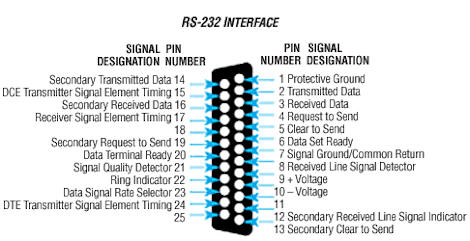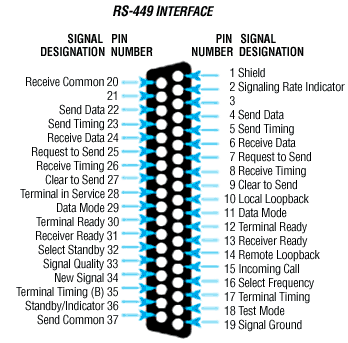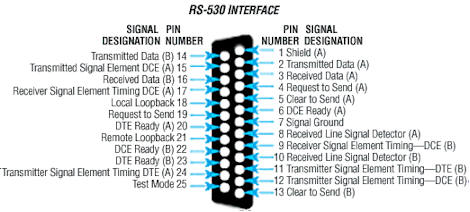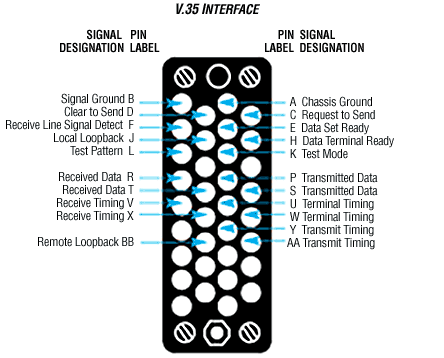| Services | Serial Data Transmission Serial data transmission is the most common method of sending data from one DTE to another. During transmission, the data must pass through a serial interface to exit a computer as serial data. The following are common interfaces for serial data: RS-232
RS-449
RS-530
RS-422
V.35
NOTE: ITU (International Telegraphic Union) was
formerly the CCITT. |
|
| ► | Software Development | |
| ► | Web Based Notification and Messaging | |
| ► | Network Design, Management, and Security | |
| ► | Network Backup and Continuity Planning | |
| ► | Remote Site and Incident Location Networking | |
| ► | Remote Access Solutions - VPNs | |
| ► | Database Server Management | |
| ► | Wireless Data Solutions | |
| ► | Rogue Wireless Data Detection | |
| ► | Firewall and Intrusion Detection Solutions | |
| ► | Network and Data Security | |
| ► | Automation Project Management | |
| ► | Web & Email Group Survey Systems | |
| ► | Data Mining - Data Analysis - Geocoding | |
| ► | Technology Consulting and Education Services | |
| ► | Seminar and Conference Organization and Management | |
| Products / Downloads | ||
|
► |
Software | |
|
► |
Hardware | |
|
► |
Policy Samples | |
|
Articles ► Articles Presentations |
||
| ► | Presentations | |
| Technical Documents | ||
| ► | Ethernet Overview | |
| ► | High Speed Networking | |
| ► | Frame Relay Overview | |
| ► | Fiber Optics | |
| ► | Routers and Bridges | |
| ► | Digital Subscriber Lines (xDsL) | |
| ► | Category 5 Cabling and Beyond | |
| ► | Serial Data Transmission | |
| ► | Universal Service Ordering Code (USOC) | |
| ► | Universal Serial Bus (USB) and Firewire | |
| ► | dBm to Watt Conversion | |
| Company Information | ||
| ► | About CPCS Technologies | |
| ► | Contact Information | |
| Links / Resources | ||
|
► |
Additional Resources | |
|
|
||



